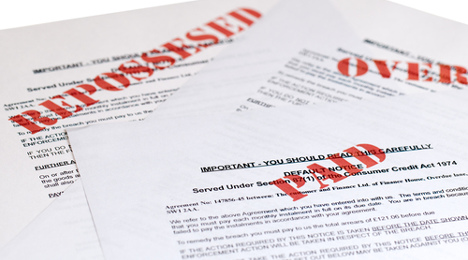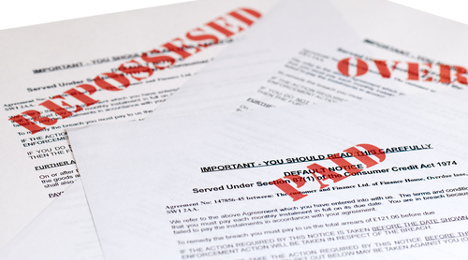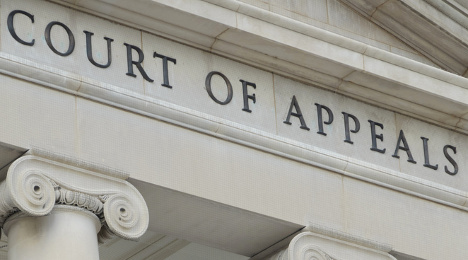In the first part of his series, Intellaegis president John Lewis offered three suggestions on creating a mock audit to prepare for a potential examination by the Consumer Financial Protection Bureau.
To wrap up the blog endeavor for SWBC, a diversified financial services company that has interests in the automotive world along with insurance, mortgage banking and wealth management, Lewis went back to his kindergarten theme to generate six basic principles regarding current compliance challenges when it comes to repossessions and recoveries.
“Let’s go back to kindergarten for a minute when life was simple and the rules were based on common sense,” Lewis wrote in this blog post before going into his six points, which are:
1. Share everything
Lewis insisted transparency through tracking in cutting-edge software is now a “must-have” for gathering, sharing and tracking all data that relates to customers and what happens on their account in collections — be it internally or externally within a vendor network.
2. Play fair
Lewis recommended that finance companies identify and eliminate “bad actors.”
He said, “You’re not playing fair if you’re employing or hiring people who do not treat your customers with the respect they deserve.”
3. Clean up your own mess
Lewis suggested that finance companies identify issues inside the organization or within a vendor network before they become problems.
“Create solutions that address issues and problems that arise, so you don’t keep dealing with the same mess over and over again,” he said.
4. Don’t take things that aren’t yours
Lewis emphasized that wrongful repossessions should be avoided at all costs.
“By using repossession assignment software that ties you and the repossession vendor at the hip, wrongful repossessions will not occur,” he said.
5. Say you’re sorry when you hurt somebody
Lewis recollected a famous part of the Watergate investigation that noted, “The cover-up is worse than the crime.”
He added, “The CFPB sees (and rewards you) when you catch and resolve issues internally without a regulator having to tell you what to do.”
6. Wash your hands before you eat
Lewis closed his series by noting the segment he said “may be the most relevant of all, and it should be the largest concern of every small- to mid-sized lender who does not have the resources to have a fully staffed compliance and security department.”
He referenced an idea from SWBC asset recovery program manager Karen Townsend, who pointed out that “an internal lack of expertise can truly impact your bottom line.”
Lewis again will be leading discussions during the Re3 Conference at Used Car Week, which runs from Nov. 14 to 18 at the Red Rock Resort and Casino in Las Vegas. The Re3 Conference is the portion of Used Car Week dedicated to helping organizations gain the best insights to aid their efforts in repossessions, recoveries and remarketing.
Intellaegis president John Lewis recently compiled a two-part blog series for SWBC, a diversified financial services company that has interests in the automotive world along with insurance, mortgage banking and wealth management.
While Lewis geared his collections compliance recommendations toward credit unions, the initial three suggestions on creating a mock audit to prepare for a potential examination by the Consumer Financial Protection Bureau could benefit finance companies of all sizes.
Lewis structured his plan by taking a rudimentary approach, viewing the entire process as if it were kindergarten.
“Having participated in a couple examinations by the CFPB with our clients who are top 20 auto finance lenders, we’ve seen firsthand why it’s important to get back to your roots — kindergarten,” said Lewis, whose company offers the skip-tracing and collection solution masterQueue.
Lewis again will be leading discussions during the Re3 Conference at Used Car Week, which runs from Nov. 14 to 18 at the Red Rock Resort and Casino in Las Vegas. Like he’s done at Used Car Week, Lewis gave a step-by-step process in his material for SWBC.
1. Audit your policies and procedures
“First, take a good look at all your internal policies and procedures,” Lewis said. “Look for gaps between the various state and federal laws, as well as the interpretation of these laws as seen in specific enforcement already taken by regulators against lenders and their vendors.
“This type of data is available, but it’s a big job to gather, organize and use to your benefit,” he continued.
To handle those chores, Lewis suggested that institutions reach out to local universities and seek assistance from college students who are looking for experience in conjunction with their education in a field related to auto financing.
“They benefit from the pay and real-world experience and we benefit from having a dedicated team that is able to focus on specific areas we normally wouldn’t, given limited staff resources,” he said.
2. Audit your service providers
Lewis reminded finance companies that in April 2012 the CFPB released a statement holding all institutions responsible for the actions of their external vendors.
“They have gotten more serious about enforcing this rule to the tune of hundreds of millions of dollars in fines not covered by your service providers’ insurance policies,” he said.
As a result, Lewis suggested that finance companies review their providers, including loan servicing companies, collection agencies, debt buyers, repossession agencies, skip or forwarding companies and door-knock companies.
3. Step up to the plate
Lewis closed this opening blog post — which can be viewed in its entirety here — with a blunt message.
“Finally, build a culture within your organization to do everything in your power to meet and exceed all these requirements. Complaining won’t do any good, so tell your complainers to ‘zip it,’” Lewis said.
While franchised dealers surely want to turn plenty of used and new metal this summer, the National Automobile Dealers Association suggested that they welcome another kind of “up” who might be equally as important as the potential buyer for a vehicle that’s been in inventory for too long.
NADA emphasized the upcoming congressional recesses this summer provide an “ideal” opportunity for dealers to meet with their members of Congress to discuss the association’s legislative priorities. The congressional recess schedule for the House and Senate is now through July 5 and again from July 18 to September 6.
“Meetings with members of Congress at home — either at their district offices or at the dealership — go a long way toward supporting NADA’s legislative efforts on Capitol Hill,” association officials said.
Specifically, NADA recommended that dealers should ask their Democratic Senators to support and vote for S. 2663, the Reforming CFPB Indirect Auto Financing Guidance Act, which would require the Consumer Financial Protection Bureau to withdraw the “flawed” guidance that attempts to eliminate the ability of dealers to discount auto financing for consumers.
For the NADA Issue Brief and Myths vs. Facts sheet on S. 2663, go to this website.
For assistance in setting up a meeting with your member of Congress, go here for NADA’s grassroots brochure titled “3 Easy Steps.”
For additional support in arranging a visit at a congressional district office or the dealership, contact Patrick Calpin, NADA director of grassroots advocacy, at (202) 547-5500 or [email protected].
Attendees at last week’s ACA International 2016 Convention & Expo in Denver heard first-hand from the Consumer Financial Protection Bureau about its potential regulatory moves in the collection space.
Officials from ACA International, the Association of Credit and Collection Professionals, pointed out the CFPB has yet to put out a notice of proposed rulemaking regulating the credit and collection industry, but the bureau continues to oversee the industry through enforcement actions, supervision and examination.
During the conference, Greg Nodler, the CFPB’s senior counsel for enforcement policy and strategy, joined attorneys Jonathan Pompan and Alexandra Megaris from Venable to discuss how the bureau conducts itself related to the debt collection marketplace and how it plans to regulate the industry in the future.
Nodler did not give a date by which he expects the CFPB to release its much-anticipated notice of proposed rulemaking for the debt collection industry. He said the next step in the rulemaking process would be to convene a SBREFA (Small Business Regulatory Enforcement Fairness Act) panel and publish an outline of the panel’s findings on how the proposed rule would impact small businesses.
Pompan said the rule would likely cover multiple categories of business operations and collection activities in a “soup to nuts” scope.
“For all intents and purposes, it’s entirely possible that by the time the rule is out, the CFPB will have already done something related to the category it’s addressing, either through enforcement, supervision or amicus briefs,” he said.
In fact, ACA highlighted much of the panel’s discussion focused on the CFPB’s other major activities related to the credit and collection industry: enforcement actions, supervision and examination, advocacy and partnership and handling debt collection complaints.
Nodler explained that CFPB exams let companies know what the bureau will look for, and the CFPB’s supervisory highlights reports discuss exam findings so “companies can look at them and see if they’re engaged in the same activity.”
In addition, enforcement actions are a way to let the industry know if a particular issue is a big priority for the CFPB, according to Nodler. However, there are times when the CFPB decides it’s not necessary to bring public action against a company for a compliance violation.
“Supervisors will talk to enforcement about how the exam went, and they’ll say whether or not the company was genuine about making a mistake,” Nodler said. “For instance, if the company is giving restitution on their own, that’s the biggest factor to me. We have done it, but the civil penalty is minimal and we mention the restitution in our press materials.”
Megaris added, “The CFPB is one of the most transparent of the federal agencies. While the rule is taking a lot longer than expected, there are resources out there to let you know what the expectations are.”
ACA International recently released a new white paper as part of its ongoing initiative to collect original data about the credit and collection industry and show how debt collection companies impact the economy.
In its paper titled “Methodological and Analytical Limitations of the CFPB Consumer Complaint Database,” ACA highlighted that the Consumer Financial Protection Bureau’s consumer complaint database is “rife” with methodological and analytical flaws.
The white paper examined “specific concerns with the measures used to elicit and organize complaints, bias introduced into the data-collection process, and the means by which complaints are categorized by industry.” According to the white paper, problems with the database include non-exclusive reporting categories for complaints, self-selection and confirmation biases, and human error when a consumer misclassifies a complaint.
Because of the confusing complaint categories in the CFPB’s complaint portal, where the bureau gets its information for the database, many consumers accidentally submit debt collection complaints when they meant to identify a different financial service. CFPB director Richard Cordray acknowledged as much during a hearing before the U.S. House Financial Services Committee. Cordray testified that “when we look at debt, some of these complaints are simply misclassified.”
The white paper, which can be downloaded here, asserted that if the CFPB does not provide the appropriate context for complaints in its broad database, then consumers will lack important information for how to understand various complaints; it’s nearly impossible to interpret data that has not been presented in context.
“The CFPB is able to paint an unfairly negative picture of the credit and collection industry, and other legitimate businesses, because it relies on flawed data that has no context to it,” ACA International chief executive officer Patrick Morris said. “While the credit and collection industry continually seeks to strengthen its practices and reduce the number of complaints, the fact is, compared to the billion calls debt collectors make each year, the complaint rate is very small.”
Morris emphasized that ACA has continuously urged the CFPB to ensure that the complaint information it shares is based on meaningful, normalized data. In August of last year, ACA submitted comments to the CFPB in response to its request for information on data normalization, highlighting the particular importance of context when evaluating debt-collection complaints and the critical need for the CFPB to develop and implement data normalization procedures.
This ACA International white paper is part of a larger research initiative to collect more original data about the credit and collection industry that quantifies the ways in which debt collectors help consumers and the overall economy.
With debt collection as one of the most highly regulated industries in the country, the upcoming ACA International Convention and Expo will be highlighting important details any creditor and its employees who engage in debt collection should understand about the laws, as well as how to successfully comply with the CFPB and other state and federal regulators.
ACA International offers an intensive, three-day event that includes sessions focused on advanced debt collection compliance education, how to build a debt collection function, and how to engage a third-party debt collector. Businesses that provide loans of any kind should attend.
This year the event will be held June 16-18 at the Hyatt Regency Denver and Colorado Convention Center. Auto Remarketing, SubPrime Auto News and BHPH Report readers can use the code AUTO100 to register and receive a $100 discount by going to this website.
There is good reason for businesses in the auto finance space to attend. The largest and most influential event in the credit and collection industry, the 2016 ACA International Convention will include an exclusive, specialized education such as:
—Advanced compliance: conducting a risk assessment
—Advanced compliance: controls and corrective action
—Elements of a compliance management program
—How to select and review third-party agencies
Jim Donald, the former CEO of Starbucks and one of the Top 25 CEOs in the World as named by The Best Practice Institute, will present the event’s keynote speech.
Along with additional details about the volume coming out of Florida, the Consumer Financial Protection Bureau released its latest monthly consumer complaint snapshot this week, focusing on debt collection coming on the heels of a special report on collections involving servicemembers.
The newest information from the CFPB indicated that the most common debt collection complaint is about attempts to collect on a debt the consumer reported was not owed.
As of March 1, the bureau said it has handled approximately 834,400 complaints across all products.
CFPB director Richard Cordray said this new report “shows that inaccurate information about debts continues to be a source of frustration for many consumers.
“We will continue to hold debt collectors accountable for ensuring that they are collecting the right amount from the right person,” Cordray continued.
The bureau noted that it had handled approximately 219,200 debt collection complaints as of March 1. Drilling deeper into that figure, the CFPB mentioned:
1. Collection on debts not owed
The most common debt collection complaint had to do with both first- and third-party debt collectors attempting to collect on a debt the consumer reported was not owed. These types of complaints accounted for 38 percent of all debt collection complaints submitted.
2. Debt collectors repeatedly calling consumers
Another frequent complaint from consumers was about communication tactics used by debt collectors. Consumers complained about receiving multiple calls weekly and sometimes daily from debt collectors. Consumers often complained that the collector continued to call even after being repeatedly told that the alleged debtor could not be contacted at the dialed number. Consumers also complained about debt collectors calling their places of employment.
3. Consumers unable to verify debts owed
Consumers complained that they were not given enough information to verify whether or not they owed the debt that someone was attempting to collect.
4. Most-complained-about debt collection companies
The two companies that the CFPB received the most debt collection complaints about were Encore Capital Group and Portfolio Recovery Associates. Both companies, which the bureau believes are among the largest debt buyers in the country, averaged more than 100 complaints submitted to the CFPB each month between October and December 2015.
Last year, the CFPB mentioned took enforcement actions against these two large debt buyers for using deceptive tactics to collect bad debts.
More details on collection complaints involving the military
The CFPB’s Office of Servicemember Affairs recently shared its annual report that stated servicemembers have been submitting debt collection complaints to the bureau at nearly twice the rate of non-military consumers.
In addition the report recapped CFPB enforcement actions that have returned more than $5 million to servicemembers and their families in 2015. Those developments included an action against Security National Automotive Acceptance Company (SNAAC), an Ohio-based auto finance company for engaging in abusive debt collection practices against servicemembers and their families.
“The complaints highlighted in this report show that members of the military continue to have serious problems when it comes to debt collection,” Cordray said. “The bureau will continue to closely monitor complaints from servicemembers to ensure our brave men and women are getting the protection they deserve.”
In 2015, the CFPB indicated that it received more than 19,000 complaints from members of the military community. The top three most complained about products or services were debt collection, mortgages, and credit reporting.
Involving debt collection, the bureau noted roughly 44 percent of the complaints submitted by servicemembers involved companies’ attempts to collect debt that the servicemember believes is not owed.
Additionally, the CFPB said servicemembers often complained that debt collectors would contact their commanding officers and threaten their security clearance over a debt issue.
Complaint volume from Florida
The CFPB spotlighted Florida for its latest complaint update.
As of March 1, consumers in Florida submitted 80,200 of the 834,400 complaints the CFPB has handled. Complaints from the three largest metro areas in Florida — Miami, Orlando and Tampa — accounted for nearly 60 percent of the complaints submitted from the state.
Other findings from the Florida complaints included:
— Mortgages are the most-complained-about product: Consumer complaints from Florida are more likely to be about mortgages than consumer complaints nationally. While nationally mortgages account for 26 percent of total complaints submitted to the bureau, mortgages complaints account for 30 percent of complaints from Florida.
— Florida debt collection complaints mainly mirror national trends: The bureau noticed Sunshine State residents are slightly less likely to submit complaints about debt collection. Complaints about debt collection accounted for 24 percent of total complaints from Florida, while nationally debt collection complaints account for 26 percent of total complaints submitted.
— Most-complained about companies: Equifax, Bank of America and Experian were the three most-complained about companies from consumers in Florida.
New analysis from the Mercatus Center at George Mason University reviewed the law and economics of consumer debt collection and its regulation. The expert who compiled the report insisted that the Consumer Financial Protection Bureau should consider all the potential consequences of new regulation — both intended and unintended — to ensure that it will benefit consumers.
Mercatus senior research fellow Todd Zywicki emphasized how it is important for policymakers to understand the six potential consequences in light of an announcement by the CFPB that it is considering new regulation for consumer debt collection.
“Effective legal rules governing debt collection are essential to the efficient operation of the consumer credit economy,” Zywicki said in the paper titled, “The Law and Economics of Consumer Debt Collection and Its Regulation.”
Zywicki continued with, “If creditors are unable to effectively collect debts, they will be reluctant to lend. If borrowers feel oppressed by unfair debt collection practices, they will be reluctant to borrow.
“Maintaining a modern, flexible system of rules for debt collection is essential in order for both borrowers and lenders to have confidence that contracts will be enforced and that the terms of those contracts will be fair and transparent,” he went to say.
Before imposing new regulations, Zywicki pinpointed six factors that can adversely affect consumers of credit that he believes the CFPB should consider, including:
1. Consumer debt collection is already subject to extensive regulation
Since the 1970s, Zywicki noted consumer debt collection has been subject to extensive regulation at both the federal and state levels.
“Most questionable debt collection practices have previously been outlawed or restricted. Concerning existing practices, it is challenging to discern whether further restrictions would create any new benefits for borrowers that would exceed their additional costs,” he said.
2. While good regulation can improve economic welfare, bad regulation can injure consumers and the economy
Zywicki pointed out that restricting creditor remedies raises the risk of loss and the loss rate for lenders, leading to higher prices for loans and a reduction in supply.
On the other hand, he acknowledged restricting creditor remedies reduces the total cost of borrowing for consumers, producing an increase in the demand for loans.
“As a result, restrictions on collections simultaneously reduce supply and increase demand,” he said. “It is unclear whether restrictions would actually increase or decrease quantity.”
3. Riskier consumers tend to be injured the most by restrictions on debt collection practices
The George Mason expert explained restrictions on debt collection may benefit consumers who are actually subject to the collection process, but this will come at the expense of other consumers who have to pay more for credit and gain less access to credit.
“Because riskier borrowers are predicted to be the most likely to default, they will also bear a greater proportion of the cost of regulation than other borrowers, even though in most cases they repay their debts,” Zywicki said.
Zywicki pointed out that restrictions on collections tend to adversely affect credit card lending relative to other types of lending. He added higher-income consumers will be able to avoid some of these negative effects by making greater use of secured debt (such as home equity lines of credit), whereas lower-income users will be forced to turn to products such as payday lending and auto title loans.
4. Third-party debt collectors and debt buyers play a unique role in the consumer collections system
Zywicki insisted third-party collection agencies provide liquidity and expertise in collection practices that reduce losses and increase efficiency for consumer lenders.
“This reduction in losses may be particularly valuable to some types of creditors compared to others and may be useful for creditors that otherwise might be overly lenient in their collection efforts and pass on the costs to their other customers,” he said.
5. Regulation of particular collection practices can have unintended consequences
Zywicki explained debt-collection practices tend to follow a sliding scale of intensity, beginning with low-expense practices such as letters and phone calls and escalating to higher-intensity practices such as lawsuits.
“Restricting the use of less-intense practices can interrupt this important economic calculation, leading to swifter invocation of more-intensive practices, such as lawsuits,” he said.
6. Regulation should not disproportionately burden small debt collection firms and stifle competition
Zywicki went on to mention compliance with Dodd-Frank and other regulations enacted since the financial crisis is disproportionately costly for smaller firms in the financial services industry, including the debt collection and debt buying industries.
“Smaller firms, however, have traditionally played an important role in the debt collection industry by providing knowledge of local economic conditions and promoting competition that can benefit consumers,” Zywicki said.
“Regulation that disproportionately burdens small businesses with unnecessary regulatory compliance costs will promote unnecessary consolidation of the debt collection industry,” he went on to say.
2 more suggestions for CFPB
Zywicki closed his analysis by making a pair of other recommendations for the CFPB to consider.
He reiterated that many restrictions on collections do not benefit consumers
“Even if restrictions on collection practices raise prices, consumers will still benefit if they value the ability to avoid those practices more than the creditor values the ability to exercise them,” Zywicki said.
“In practice, however, many restrictions fail cost-benefit analysis, because consumers place less value on avoiding particular remedies in the case of default than the increase in price they would have to pay the lender to offset the loss of the remedy,” he continued.
Zywicki also suggested that regulations should be based on careful cost-benefit analysis and consideration of changing consumer lifestyles and communications technology
“Given the likelihood of unintended consequences arising from new collections regulations, the CFPB should conduct careful cost-benefit analysis before it imposes new regulations on debt collection,” Zywicki said.
“The CFPB should consider consumers’ growing reliance on technologies such as cell phones, email, and text messaging, and modernize its rules to allow more flexible contact using those technologies while at the same time protecting consumers from intrusions on their privacy,” he went on to say.
Zywicki closed by making one final point about the bureau’s potential moves regarding debt collection.
“From its inception, the CFPB has described itself as a ‘data-driven agency’ that applies sound economic and empirical analysis to craft consumer protection policies,” he said.
“The CFPB should seek to follow this goal for consumer debt collection rules and consider rules that can be shown to protect consumers from overreaching creditor behavior, ensure access to credit at competitive prices, and avoid burdening consumers with unnecessary restrictions and compliance costs,” Zywicki concluded in the document that can be downloaded here.
Service provider WebRecon determined auto financing filings still only represented a small amount of the complaints recently sent to the Consumer Financial Protection Bureau.
WebRecon chief executive officer Jack Gordon examined the regulator’s database and found the CFPB received 3,443 complaints associated with debt collection in July.
That total amount represented a 2.1-percent decline on a sequential basis as well as 1.9 percent dip year-over-year. That figure also was associated with 825 different companies.
Furthermore, WebRecon noticed that just 2 percent of the total — only 70 cases — were connected with auto financing.
Gordon explained in a company blog post that CFPB complaints against debt collectors “are about normal, down a little from last month but with a steady trickle of new data coming out it will probably be even.”
He added that overall CFPB complaints are up “an anemic” 1.1 percent year-to-date.
Gordon’s analysis also broke down the top reasons for the complaint, including:
— Continued attempts collect debt not owed: 1,521 or 44 percent
— Disclosure verification of debt: 609 or 18 percent
— Communication tactics: 599 or 17 percent
— False statements or representation: 260 or 8 percent
— Taking/threatening an illegal action: 238 or 7 percent
— Improper contact or sharing of information: 216 or 6 percent
Finally, Gordon also shared the top 10 states where complaints originated, including:
1. California: 473
2. Florida: 334
3. Texas: 322
4. New York: 173
5. Georgia: 155
6. Illinois: 139
7. Pennsylvania: 123
8. Ohio: 115
9. New Jersey: 114
10. Virginia: 112
Joining the journey first started by ACA International, the U.S. Chamber of Commerce as well as the Consumer Bankers Association, recently filed petitions for review in the U.S. Court of Appeals for the D.C. Circuit, challenging several aspects of a declaratory ruling and order issued by the Federal Communications Commission this summer that officials believe will accelerate “abusive” class action lawsuits against businesses under the Telephone Consumer Protection Act (TCPA).
In its declaratory ruling and order, the Chamber recapped that the FCC vastly expanded the scope of the TCPA in several ways.
First, as explained in the Chamber's petition for review, the FCC adopted a broad definition of the types of equipment covered by the TCPA, going so far as to suggest that even mass-market smartphones could be covered "auto-dialers." The breadth of this ruling is highlighted by the fact that the FCC had to rely on the antiquated rotary phone as an example of equipment not covered by the law.
Second, the FCC concluded that the TCPA applies to any call made to a current subscriber or user of a reassigned wireless number, rather than the intended recipient.
Third, the FCC arbitrarily allowed just one call before imposing strict liability under the TCPA for calls that, without the caller's knowledge, have been placed to a reassigned number, despite the fact that there is no practical way to verify the continued accuracy of numbers before a call is placed.
Fourth, the FCC significantly limited the TCPA's consent defense, which is an essential statutory tool for warding off liability under the TCPA.
Because the TCPA is increasingly the basis for meritless class actions that seek crippling damages of up to $1,500 per call against businesses, of all sizes and types, officials insisted the FCC’s actions are particularly harmful for the Chamber’s members.
The U.S. Chamber is represented by the U.S. Chamber Litigation Center and the law firm of Gibson Dunn & Crutcher.
“Although we support the rights of consumers as it relates to telephone communications, the FCC overstepped its authority by creating new restrictions on legitimate, good faith communications from businesses to their customers who previously gave their permission to be contacted," said Harold Kim, executive vice president of the U.S. Chamber Institute for Legal Reform (ILR).
“These arbitrary new limits will fuel abusive class action lawsuits against businesses,” Kim added.
A copy of the U.S. Chamber's petition for review is available here.
The Consumer Bankers Association took a similar stance in its position, which is available here.
Of the more than 30 educational and networking sessions on tap for the Debt Connection Symposium and Expo 2015, one of the highlights is the session geared specifically for the vehicle recovery space.
Event organizers highlighted that the Auto Finance Peer Group breakout session is being set up to provide auto creditors the opportunity to meet with industry peers to discuss auto recovery issues, challenges and best practices.
During the breakout session, there will be discussions related to the current economic situation, its impact on vehicle recoveries, and the best practices of industry leaders to manage recovery operations through these challenging times.
“The session will be an interactive, open forum providing attendees the opportunity to share their experiences, thoughts and plans for the future,” officials said about event segment to be moderated by Kelli Edmonds of Axcess Financial Services.
The Debt Connection Symposium and Expo 2015 is set for Sept. 9-11 at the JW Marriott in Austin, Texas.
Along with the auto finance segment, some of the other event sessions include:
— Meet the Regulators: Scheduled to appear are Greg Nodler and Susan Torzilli of the Consumer Financial Protection Bureau and Matthew Wilshire of the Federal Trade Commission.
— The Great Debate on Collection Effectiveness and Compliance: Set to participate are Mark Naiman of Absolute Resolutions Corp., Manny Newburger of Barron & Newburger, Andrew Schorn of USAA Federal Savings Bank and Josh Seuberling of Tempoe.
— Skip Options and Solutions: On the scheduled panel are Bill Butler of Experian, Sheila Gabler of VeriFacts, Marc Ahlers of Digital Recognition Network and Jason Horsley of LexisNexis.
“DCS2015 combines five distinct learning styles and experiences with more networking opportunities and specialty meetings than ever before in one venue — structured to maximize the educational focus of the event,” officials said.
“With collections, compliance and accountability as our educational focus, we a take a fresh look at the operational decisions affecting our company’s goals, whether it impacts the protection of the consumer, the brand, or the company’s performance and continued existence,” they continued.
“Success and achievement are a combination of knowledge, relationships and action. These principles will be examined throughout the conference,” officials went on to say.
The complete agenda and more details can be found at www.debtconnectionsymposium.com.












